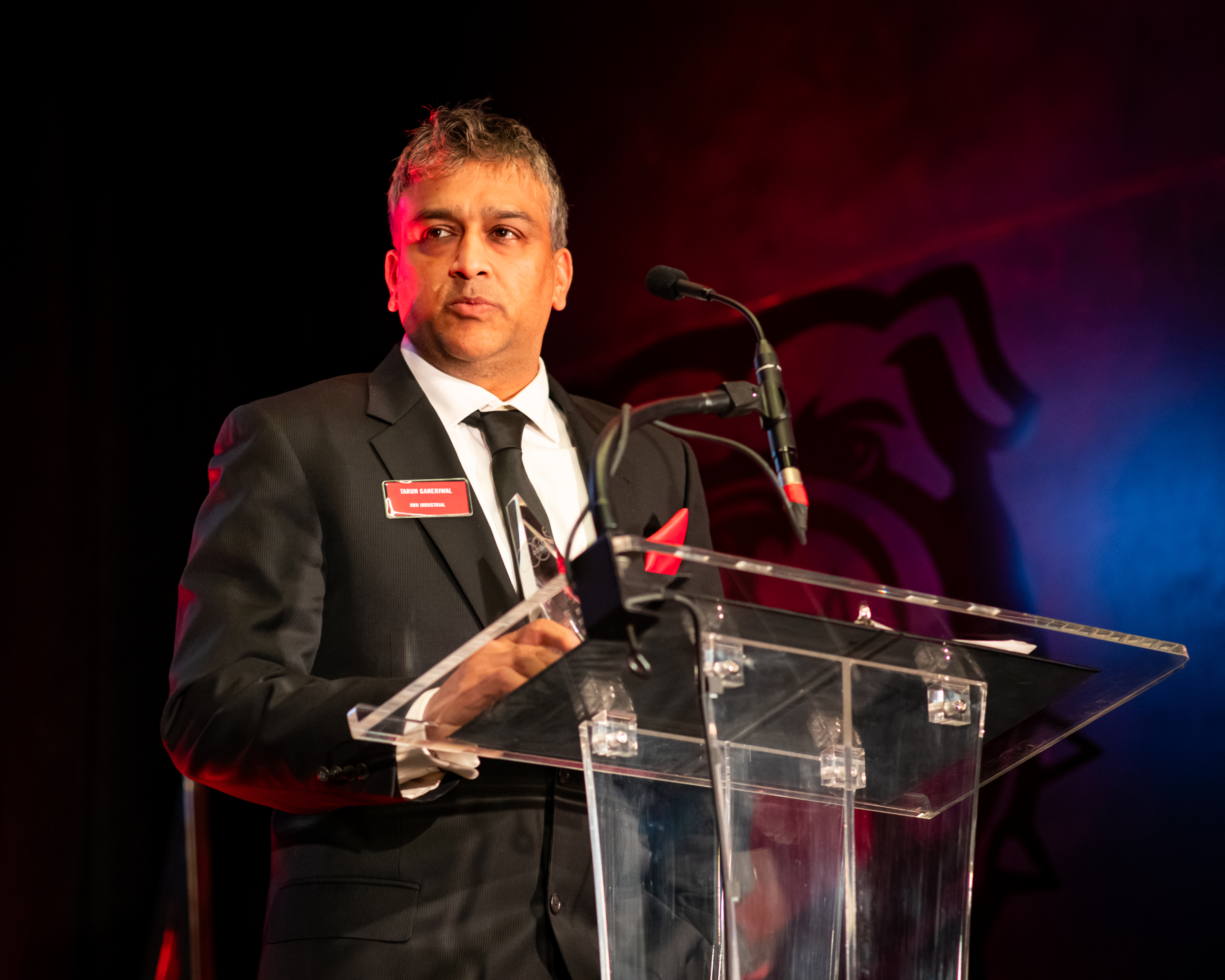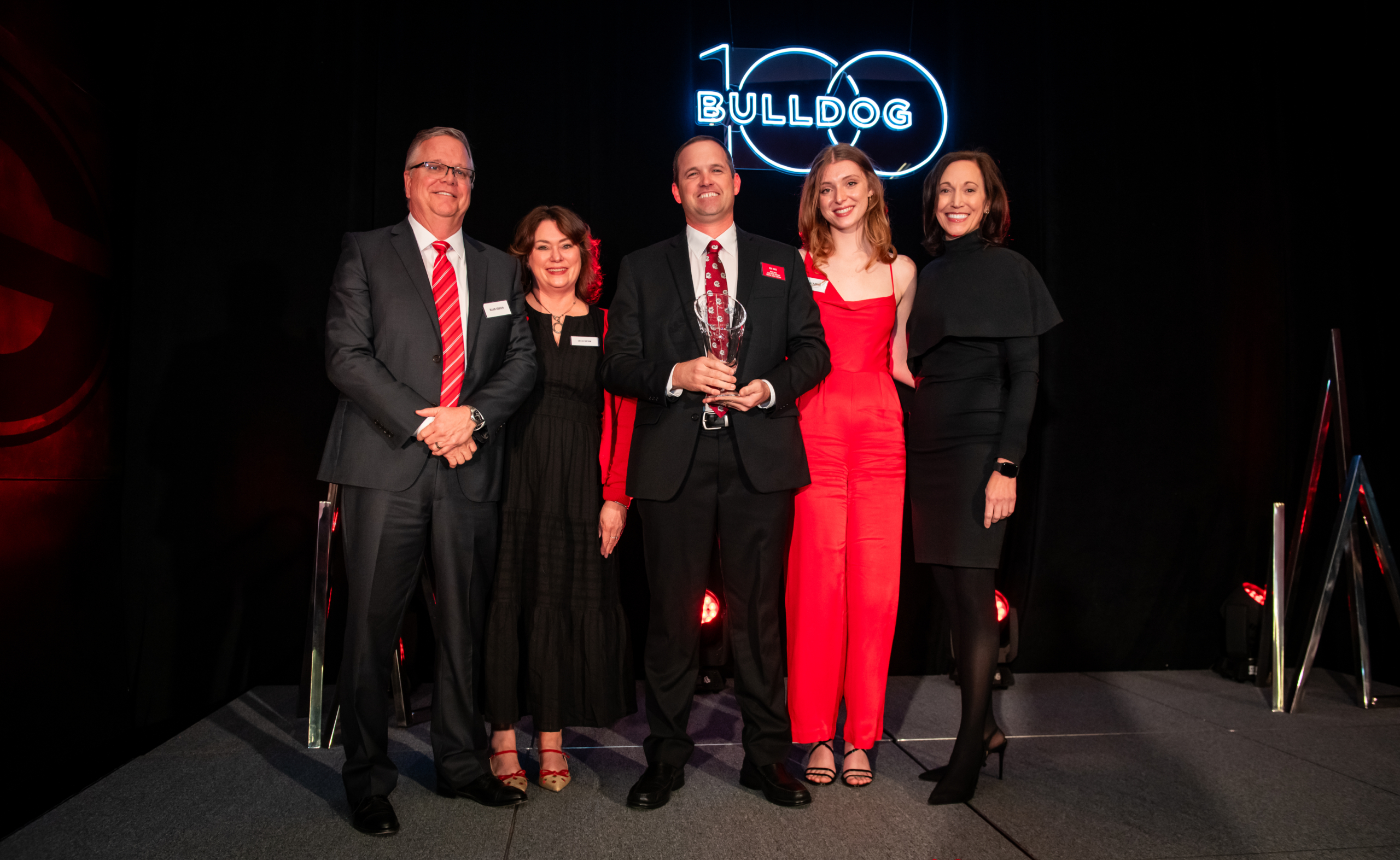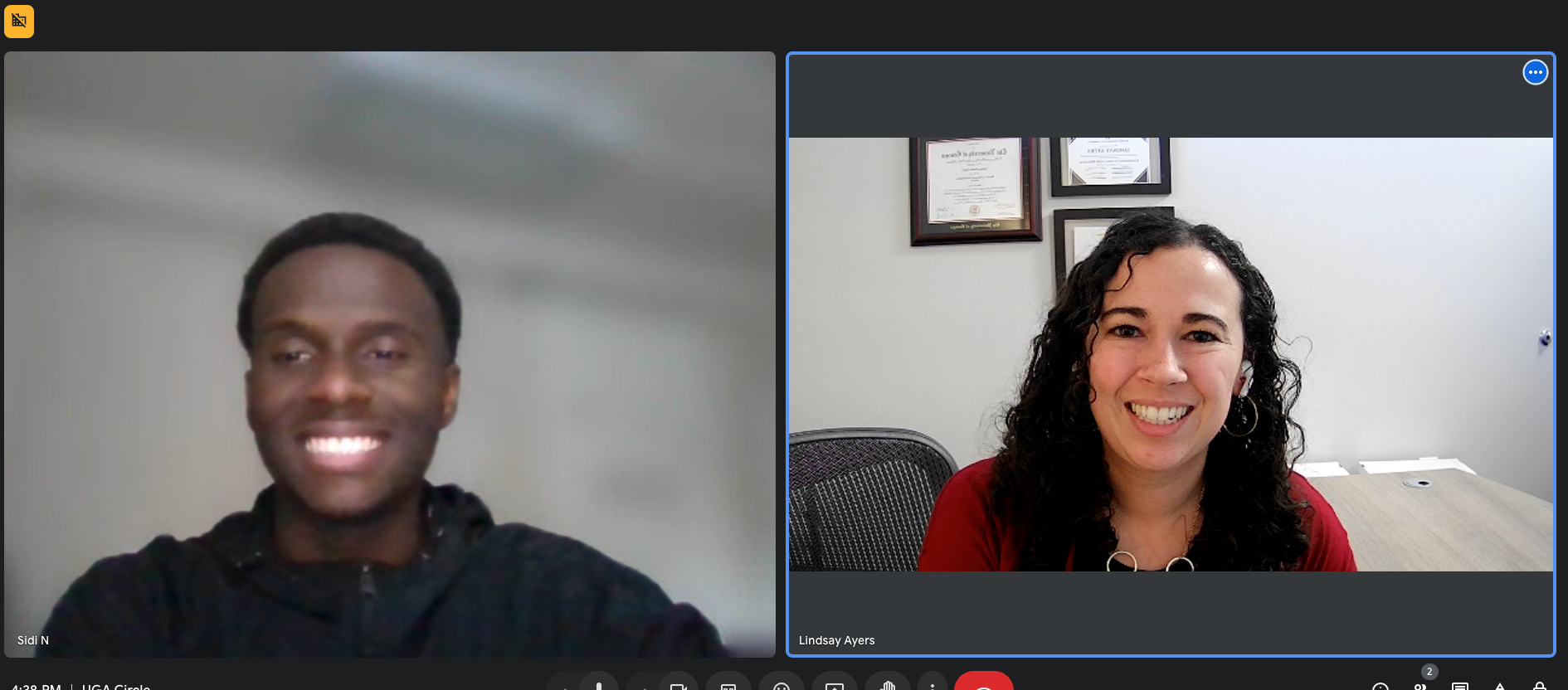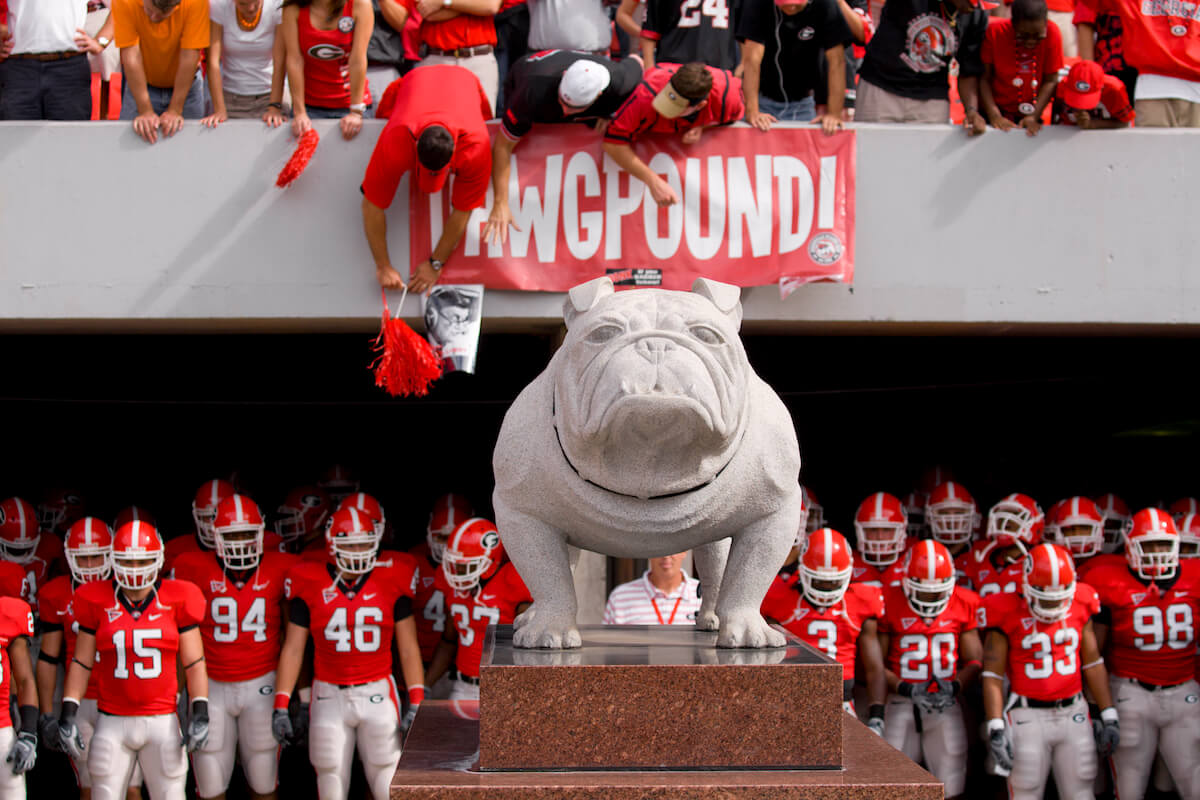The University of Georgia Alumni Association released the 2025 Bulldog 100, a list of the 100 fastest-growing businesses owned or led by UGA graduates. The program, organized by the Division of Development & Alumni Relations, celebrates 15 years of honoring alumni and their entrepreneurial endeavors.
Among this year’s class, businesses are headquartered in a total of eight states, with 87 of the businesses located in the state of Georgia. In total, 142 alumni representing over two dozen industries, including construction, pharmaceuticals, software, and entertainment, are being recognized as a part of this year’s list.
This year’s fastest-growing businesses, in alphabetical order, include:
Accelerated Leadership Group, LLC, Atlanta, GA
Alexander & Alexander Attorneys at Law, Barnwell, SC
Anchors Marina, Eatonton, GA
Architectural Fountains & Pools Inc., Atlanta, GA
ASW Distillery, Atlanta, GA
Awesome Inc, Atlanta, GA
Barnsley Construction Group, Atlanta, GA
Bay Point Advisors, Atlanta, GA
BDI DataLynk, Ball Ground, GA
Big Apple Services Inc., Conyers, GA
Biren Patel Engineering, Macon, GA
BlueBear Solutions, Atlanta, GA
BrokerHunter, Cumming, GA
Buckhead Beans, Marietta, GA
Builder’s Specialty Contractors, Boynton Beach, FL
Capital Real Estate Group, Atlanta, GA
Carl R. Varnedoe, LLC, Savannah, GA
Certified Clean Care, Watkinsville, GA
CIG Consulting, Decatur, GA
Clark Drug Company, Waynesboro, GA
Classic City Consulting, Snellville, GA
Coastal Drug Company, Midway, GA
Cruise Planners, Madison, AL
Dental Claim Support, Savannah, GA
Detritus, LLC, Savannah, GA
Eagle Christian Tours, Rome, GA
Ellsworth Cleaning & Facility Services, Atlanta, GA
enewton design, Atlanta, GA
Erica Davis Lowcountry, Savannah, GA
Extra Special People, Watkinsville, GA
FI Navigator Corporation, Atlanta, GA
FinQuery, Atlanta, GA
FirstPage Marketing, Savannah, GA
FleetForce Truck Driver Training, Bradenton, FL
FranBridge Consulting, Atlanta, GA
Friendly City Pharmacy, Tifton, GA
FTM Travel, Brentwood, TN
Full Circle Coverage, Cartersville, GA
Golden Isles Pharmacy, Brunswick, GA
Good Dog Veterinary Care, Marietta, GA
Infinite Agave, Atlanta, GA
Intown Golf Club, Atlanta, GA
J. Ryan Brown Law, LLC, Newnan, GA
Jaffe Family Law, LLC, Atlanta, GA
Jetset World Travel, Atlanta, GA
Joe Powell & Associates, Alpharetta, GA
Joe Powell Services Inc., Alpharetta, GA
KBH Industrial, Smyrna, GA
Kempt Men’s Shop, Athens, GA
Kingfish Pest Control, Ponte Vedra Beach, FL
King’s Hometown Pharmacy, Blairsville, GA
Lake Pine Animal Hospital, Apex, NC
LiteWorks Window & Door, Marietta, GA
Marlin Construction Partners Inc., Lake City, FL
Martin CPA, Santa Rosa Beach, FL
Milestone Construction, LLC, Athens, GA
Moore Civil Consulting Inc., Perry, GA
Morris Hardwood Distribution, Savannah, GA
Murray Osorio, PLLC, Fairfax, VA
Nimmons Malchow Johnson Injury Lawyers, Augusta, GA
NXG Studio, North Palm Beach, FL
Onward Reserve, Atlanta, GA
Pace Lighting & Home, Savannah, GA
Pandev Law, LLC, New York, NY
Pathwise CPA Group, Watkinsville, GA
Puppy Haven, Sandy Springs, GA
Rebel Raw, Atlanta, GA
risk3sixty, Roswell, GA
Roam, Atlanta, GA
Root Design Studio, Atlanta, GA
Ross Drug, Sylvania, GA
Rugged Road Outdoors, Norcross, GA
Ryals Brothers, LLC, Lula, GA
Savannah Drywall Supply, Pooler, GA
Scott Construction, LLC, Macon, GA
SDA CPA Group, P.C., Dunwoody, GA
ServeScape, Chamblee, GA
Shuma Sports, Lawrenceville, GA
Siegel Construction & Design, LLC, Atlanta, GA
SlicedHealth, Woodstock, GA
Southeast Aquariums, Buford, GA
Southeastern Consulting Services Inc., Monticello, GA
Southern Commercial Roof Tech, LLC, Norcross, GA
Southern Reins Logistics, LLC, Alpharetta, GA
Stable Kernel, Atlanta, GA
Stable Waters Financial, Athens, GA
Surcheros Fresh Mex, Alpharetta, GA
SynerGrx, Atlanta, GA
Telecom Innovations, Athens, GA
teXga Farms, Clarkesville, GA
The Barnes Law Office, LLC, Atlanta, GA
The Live Oak Insurance Agency, Saint Simons Island, GA
The Sign Brothers, Bogart, GA
Tioga Capital, Atlanta, GA
Translation Station, Atlanta, GA
Whitmire Animal Hospital, Dawsonville, GA
WinGen By Swordpoint Services, Atlanta, GA
Womack Custom Homes, Cartersville, GA
Yancey Wire & Cable, Fairburn, GA
Yonder Yoga, Atlanta, GA
Each year, Bulldog 100 applicants are measured by their business’ compounded annual growth rate during a three-year period. The Atlanta office of Warren Averett CPAs and Advisors, a Bulldog 100 partner since the program began in 2009, verified the information submitted by each company.
“These alumni represent the entrepreneurial spirit and drive that is intrinsic to every Georgia Bulldog,” said Adam Roell, executive director of alumni relations at UGA. “We are so proud to celebrate all their hard work and to honor them as leaders and innovators of their industries.”
The university will host the annual Bulldog 100 Celebration in Athens on Feb. 21, 2025, to celebrate these alumni business leaders and count down the ranked list to reveal the No. 1 fastest-growing business.










